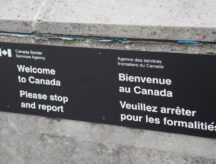Canada’s new Guidelines on Study Permit Applications Raise Questions for Students and Other Stakeholders
 New procedures affect students entering Canada to pursue pathway programs
New procedures affect students entering Canada to pursue pathway programs
On July 13, 2016, Immigration, Refugees and Citizenship Canada (IRCC, formerly CIC) changed its processing guidelines for certain study permit applications involving conditional admissions through what are known as pathway programs. Under the new procedure, visa officers are instructed to issue a Canadian study permit only for the period of the student’s prerequisite studies, which may be a language course. If and when the student successfully completes these studies, he or she then must apply for a further study permit to cover the period of his or her planned post-secondary academic or technical program. These guidelines are a departure from the previous practice, which saw visa officers issue a single study permit for the entire duration of both programs.
A typical pathway program route would involve students from abroad enrolling in a language course in Canada for a period under one year. This prerequisite course may be designed to help students reach the English or French language requirements of the main Designated Learning Institution (DLI), which may be a university or college.
Take, for example, an international student who wishes to do a post-secondary degree in Canada. After some research, she identifies the course she wishes to enroll in, but, in order to gain admission, she needs to prove her linguistic competence, usually through a test like IELTS or CAEL. Often, a language course is required in order to attain the target level. So the student identifies a language school in Canada that can help her achieve her academic goals. Previously for such a scenario, a single study permit was issued for both the language school portion and the subsequent degree portion of the student’s time spent studying in Canada. With the change, however, only a single permit will be issued for the prerequisite course.
Why the change?
According to the IRCC update, a concern that has been raised by visa officers is that a student may not successfully complete his or her prerequisite program, but will continue to hold a valid study permit allowing him or her to work. The issuance of a long-term study permit for two separate programs has also had an impact on compliance reporting (the process by which IRCC obtains information on international students who are actively pursuing their studies).
Consequences
“I think they [IRCC] have misunderstood the situation and the impact that it could have . . . There are so many questions that arise from this new directive that it’s clear that the system doesn’t work,” says Gonzalo Peralta, Executive Director of Languages Canada, an organization whose member institutions receive around 130,000 international language students per year.
“They’re saying they’re not changing the regulation, they’re just applying an interpretation based on their internal observations on how some of the visa officers are processing, and they have concerns. They have concerns about program integrity and making sure that students are actually here to study. We fully understand that, but from where we sit it really does need some consultation because it has a direct impact on thousands of students.
“The application of the IRCC policies varies from market to market. The visa officers have 100% discretion on what they do, they are the sole deciders. It’s very difficult for a student from China, for example, to get a visa to come to one of our private sector members [schools/institutions]. It’s easier for them to get visas to come to one of our public sector members and study language as part of a pathway program,” adds Peralta. “Now students have to renew their study permit more often, and they have to do so after you finish a certain portion of the pathway program, so even our public sector members will be penalized.”
Another example could be an international student who wishes to pursue a bachelor degree in Canada. He or she is not fluent in English, but finishes a prerequisite course and successfully passes an IELTS test because he or she has conditional admission to the degree program. With the new policy, there is an extra step: the student must apply for a new study permit, a process that takes around five weeks.
“Our issue is that how can I [the student] move into my Engineering program if I have to wait five weeks to receive my study permit and the university where I’m going to study is not allowed to let me into the Engineering program for liability issues,” says Peralta.
Because the procedural changes were introduced abruptly and without wider stakeholder consultation, some questions remain unanswered, or only partly answered, at this time. For example, holders of a Canadian study permit may be accompanied in Canada by their spouse or common-law partner, who may apply for an open work permit for the duration of the student’s study permit.
“For pathway program students, if the first study permit is shorter than it would have otherwise been under the old policy, one would assume that the spouse or partner’s open work permit would be similarly shorter, and that a second application for another work permit would be required if and when the student applies for his or her second study permit,” says Attorney David Cohen.
“Other questions surround whether this change affects students who are moving from a prerequisite course to a study program within the same institution, say, at the University of Toronto. Would a second permit need to be procured? The problem here is that at this time it appears that stakeholders have to adopt a wait and see position, while continuing to push for more answers to these important issues.”
Navigating the new procedures
“Essentially what is happening is students, agents, and institutions are paying for all the issues that are happening with the system. If you’re an international student and you don’t know some aspect of Canadian immigration law, well good luck to you. It’s your responsibility. And by the way, if anything goes wrong you’re out of the country. So there’s an essential fundamental problem here which is really structural,” says Peralta.
Ultimately, tens of thousands of individuals may be affected by this change. Languages Canada estimates that out of the approximately 130,000 language students its member institutions welcomed this year, 20,000 of them are already enrolled in their language course as part of a pathway program. In addition, around another 25,000 have already stated their intention of pursuing further post-secondary studies in Canada. Of the remainder, it is often the case that language students enter Canada without the intention of entering further studies, but they change their mind once they arrive and begin to fully appreciate the advantages that living and studying in Canada can offer.
CICNews.com will provide further updates on this issue and all study-related news when changes occur.
In the meantime, for more news relating to studying in Canada, please visit Canada Study News and subscribe to the Canada Study Newsletter today.
CICNews.com would like to place on the record its thanks to Gonzalo Peralta and Languages Canada for their contributions to this article.
© 2016 CICnews All Rights Reserved
- Do you need Canadian immigration assistance? Contact the Contact Cohen Immigration Law firm by completing our form
- Send us your feedback or your non-legal assistance questions by emailing us at media@canadavisa.com







